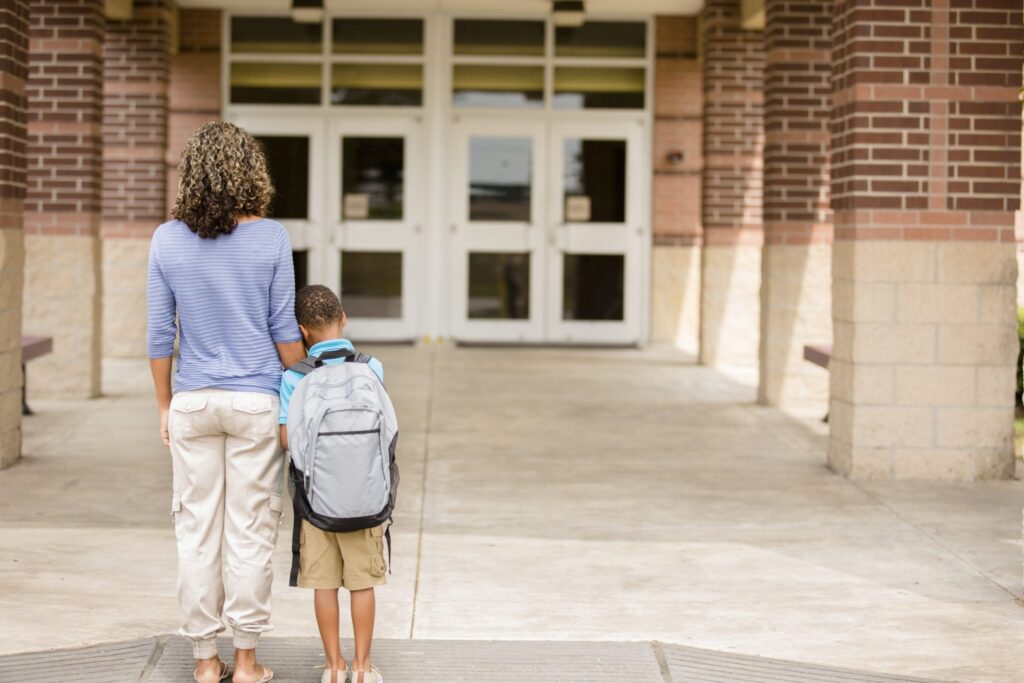Parent to Educators: Stop Labeling Our Children
What parent doesn’t want the best for their child? Of course, we all would like to live and raise our kid(s) in the safest neighborhood with the best schools staffed…

What parent doesn’t want the best for their child? Of course, we all would like to live and raise our kid(s) in the safest neighborhood with the best schools staffed by talented, attentive teachers who also advocate for our children. Regardless of status or color, parents do everything in our power to care and prepare our children for the classroom and learning.
Like so many other working-class families of color, we couldn’t afford to put my son in a private preschool, yet we didn’t qualify for the free Head Start programs offered to low-income households. So, he went to grandma’s.
There and at home, he learned how to spell his name and master his ABCs, numbers, and colors. We bought enrichment books to prepare him for kindergarten and other reading and writing workbooks for him to complete while at grandma’s house.
When he ventured out to kindergarten, we were looking forward to the start of his formal education, confident that we had poured into him all the caring and preparation we could.
And yet, the first week of school was a total shock for him. Assigned to a first-year teacher, he had to get used to being around other children and being left in the hands of an unfamiliar adult. Like many 5-year-olds, he didn’t enunciate certain words. But his pediatrician said that his speech would naturally improve as his skills developed in school and that we shouldn’t be concerned.
After my son’s second week, we got a letter in the mail. It was the first communication from his school, requesting that we meet with his teacher, administrators, and the school psychologist to screen him for… special education.
Excuse me?!
We already knew our child’s learning curve included mispronouncing a few words — but that’s no indicator of a learning problem. He was shy, not “special ed.” Never in a million years did we expect for the school to quickly label him anything after just two weeks of kindergarten. What education professional acts with such haste? And with what evidence?! Was this racial?
Thank goodness I work for an education civil rights organization that advocates for children. I was told that schools that serve the highest percentage of Black and Latino students are more likely to hire brand-new teachers, who may not have the experience or support to identify and meet each student’s needs. And I knew from Ed Trust research, that there are disproportionate rates of novice teachers in high-poverty schools.
That equipped us to enter that meeting in full armor to advocate for our son.
First, there were the questions: What do you know about your child? How is his behavior? What words do you think he knows? What challenges do you think he has? Then, we were given his test scores to review. We didn’t think there was a problem. They asked if he went to pre-K or early childhood learning. We told them there were no programs available to us.
Then it was our turn. Given my experience at Ed Trust, I only had one question for the first-year teacher: “If you saw there was a problem, what did you do to help him?”
The teacher had no answer. So the administrator turned to ask her why nothing had been done to intervene or support. Then, looking back at the scores, the administrator remarked, “He didn’t go to Head Start or pre-K?” As if that was a choice afforded to all. Again, we said no. Frankly, they were amazed at how much he knew for a child who didn’t have any formal early childhood education.
Well, meeting adjourned!
We won. But it was just one battle, one family, and one child — mine. But I cannot escape the fact that there are so many other parents who have to fight these unjust fights. Similarly, my colleague, Ebony Daughtry, wrote about how she had to advocate for her son when a teacher claimed he had ADD. Yet another Black boy mislabeled. But most parents in these situations don’t have the benefit of working for an organization like Ed Trust. We were fortunate enough to know our rights, so we could stand firm behind our children’s capabilities and understand the responsibilities of schools and educators to intervene and support.
Fast forward 12 years later, and our son is now excelling as a rising senior in high school on his way to graduating next year. I can’t say it’s always been smooth sailing, but being an involved and informed parent makes a world of difference. Yet I can’t help but wonder sometimes what would have happened as result of that meeting so long ago if we hadn’t had the courage and information to stand strong? Where would he be now? Would he have been labeled, underestimated, and pushed aside for the rest of his educational journey?
The onus should not always have to be on the parents alone to advocate for our children. Yes, it is our responsibility to send our kids to school ready to learn, but we are entrusting you with our children’s well-being. It is also the school’s and teacher’s responsibility to teach our kids, no matter if they come in behind, what challenges they may face, their race or income level — without resorting to labels.